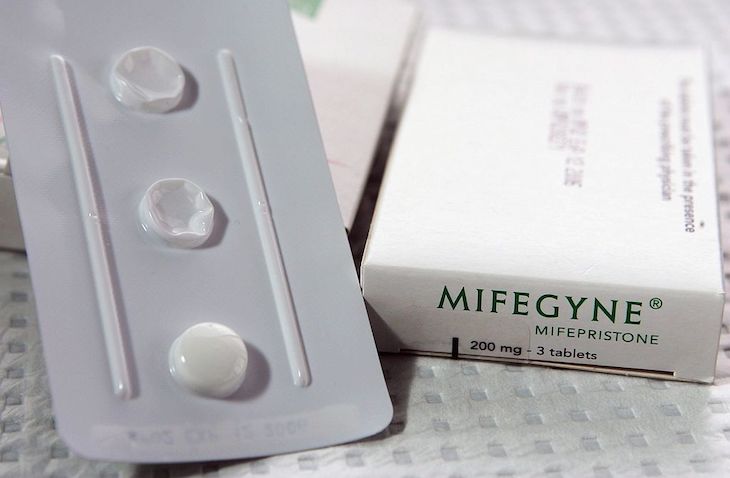Carla Foster is to be released from prison. Her 28-month sentence for illegally obtaining abortion pills and terminating a pregnancy sparked angry protests from feminists and pro-choice activists when it was handed down last month. Now, following weeks of legal dispute, the Court of Appeal has reduced her sentence to 14 months suspended. Having spent 35 days behind bars, Foster is set to be freed immediately. Good.
The Court of Appeal’s judgment is to be welcomed. It demonstrates compassion for a woman who found herself in a highly unusual and distressing situation and it allows her to be reunited with her three children. Announcing the Court’s decision, the appeal judge, Dame Victoria Sharp, declared that there was ‘exceptionally strong mitigation’ in Foster’s case and that there was ‘no useful purpose’ served by detaining her in custody.
Dame Sharp is correct: Foster’s sentence served as neither punishment nor deterrent. Nothing can turn back the clock and prevent her from becoming pregnant or resuscitate her dead baby. At her trial, she was said to have demonstrated considerable remorse for her actions. This remorse will no doubt endure, with or without incarceration.
Foster’s sentence served as neither punishment nor deterrent
The Court of Appeal heard that Foster has not been allowed to communicate with her children from inside prison. We can be sure they will have missed their mother and experienced great disruption during her absence. It strikes me that campaigners who have expressed pity for Foster’s aborted child would do well to demonstrate similar empathy for her existing children. Having done nothing wrong, they did not deserve to be without their mother for such a long period; incarcerating Foster punished them.
The argument that Foster’s sentence serves as a deterrent to others suggests that the only thing stopping women with unwanted pregnancies from self-administering late term abortions is the fear of a prison sentence. In reality, nothing could be further from the truth. Only one per cent of abortions are carried out on women who are more than 20 weeks pregnant and, for the most part, these are tragic cases of severe foetal disability or where the mother’s life might be at risk if the pregnancy were to continue. Late abortions are probably more likely to be driven by desperation than lifestyle choices taken on a whim.
Foster’s individual circumstances expose the futility of prison as a deterrent for women determined to end a pregnancy. Lockdown led her to return to her husband while pregnant with her ex-partner’s baby. Lockdown may have also curtailed childcare, medical appointments and opportunities for private conversations with friends and trusted family members. This is not to condone but to understand Foster’s actions. She found herself panicked, stressed and anxious in a situation neither she nor any other woman is ever likely to find herself again.
Any woman contemplating illegally procuring pills and self-administering a late term abortion is in a position of extreme desperation, fear and anxiety. The threat of a jail sentence will not deter a woman terrified of the consequences of giving birth from seeking to terminate her pregnancy but it will make an already incredibly stressful situation far worse.
With no reasonable basis for imprisoning Foster it is good that compassion has prevailed and she will be released. But, thanks to laws criminalising abortion, Foster still finds herself with a criminal record and a 14-month suspended sentence. We urgently need to reconsider Britain’s abortion laws: not to celebrate late term abortions as a lifestyle choice, but to recognise that the criminal courts are no place to be passing judgement on the private lives and medical decisions of often desperate women. In 2019, abortion was decriminalised in Northern Ireland. It is time the rest of the UK followed suit.







Comments